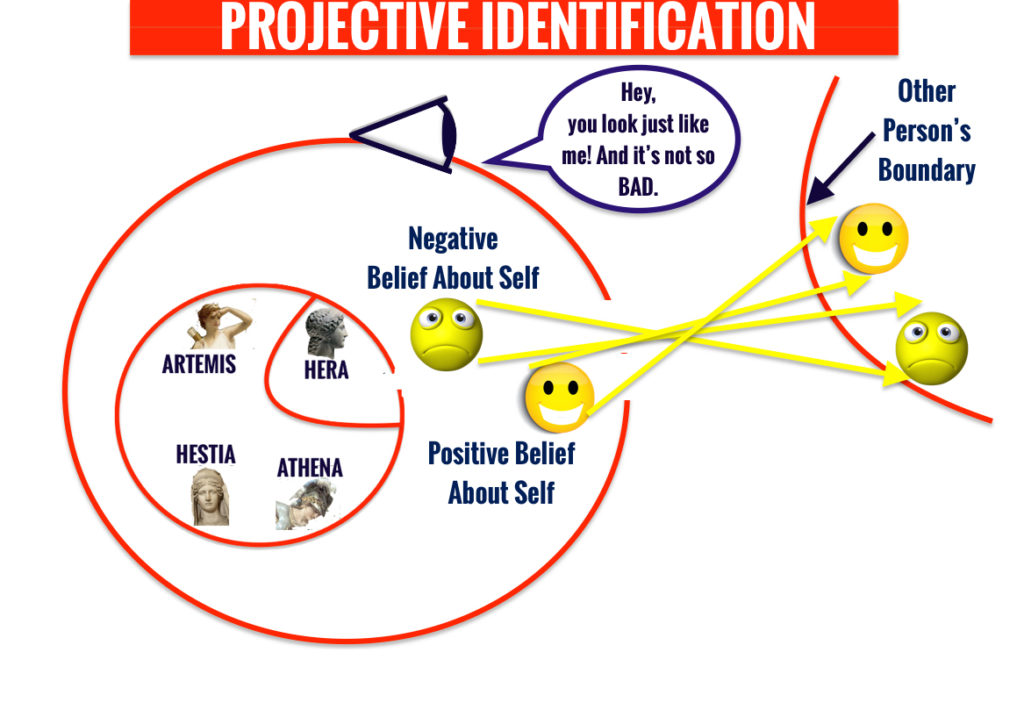This is one of those weird ones to wrap your mind around. You have views of yourself and the world which you aren’t able to accept about yourself, but when you put them out onto other people, now you find them at a safe distance, more in your control. Now you do not feel as alone with them, and can accept them in yourself.
For example, a generally dependent, helpless person may “play cute” or be charming to a person of interest, asking for help even when they don’t need it at the moment. When they find this person to be compliant with helping them, they have achieved a kind of control over them, even though they are a helpless, dependent person.
In some ways, it is a bit like having a hook and rope with which to spear another person and establish a connection to them which otherwise would not have existed, kind of like saying, “Hey, you’re just like me. We are just like each other,” when in fact, the other person isn’t anything like you and is aware of this. It is a social habit in which you feel “sticky” to others, and in which they may be made uncomfortable if they come from a very strong sense of boundaries, and may start to feel themselves uncomfortably transforming into a replica of you if they have poor boundaries.
In other ways it is similar to our childhood’s experience of “having an imaginary friend.” Or of fabricating friends when you don’t have enough of them. People who try too hard to be accepted by others, or are hungry for friendship will feel this way to you.
This may be similar to the experience of the famous or powerful at the hands of their “fans.” People who “want to be just like you” or are your “admiring audience.” They aren’t your intimates at all, nor are your family, although they have this benevolent, kinship-sounding name, “fans.” In fact, they want to use you, want a piece of you, literally, because they want to become you, not have a relationship to you as a teammate.
It is related in some ways to passive-aggression by way of the control that it exerts over another person. When you feel a kind of cloying, controlling nature in another person who otherwise appears to be pleasant and admiring of you, it may be that they are using the social habit of projective identification on you.
This one is appropriate in childhood, and between children and their parents, and you may feel an uncomfortable feeling of being an unwilling parent to another person when you are around such a person. In this sense, it is contrary to a successful committed relationship because on the team that a romantic couple forms, we all need peers, not dependents.
And so, we again see how important the personal boundary is to managing all this.


